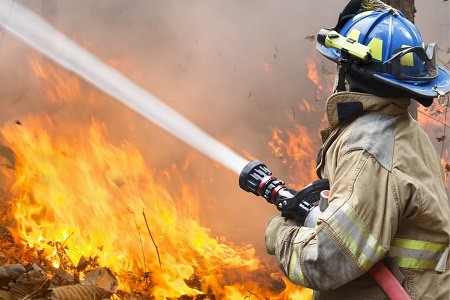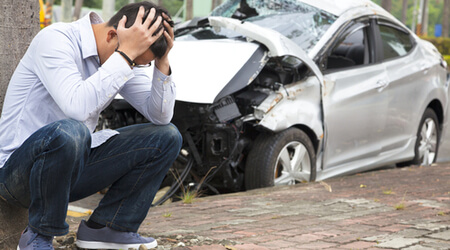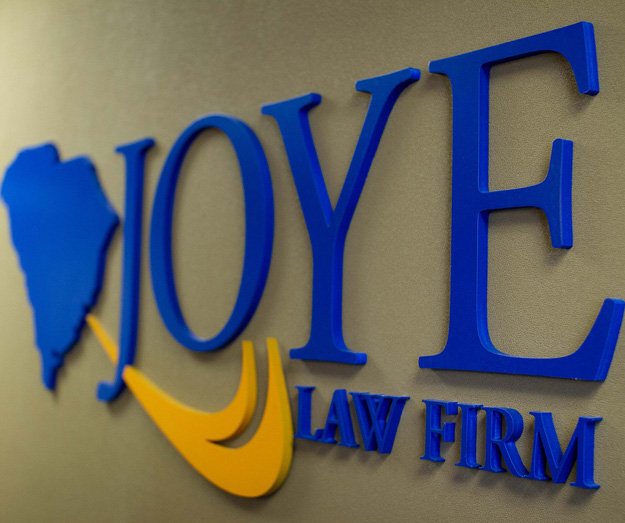
Few of us ever face the kind of workplace hazards and stress that firefighters and law enforcement officers confront regularly while performing their jobs. Firefighters face doubling the risk of work-related injuries as the average worker, according to the Bureau of Labor Statistics.
In January, two firefighters were injured in the Aynor, S.C., area when the floor beneath them collapsed during a fire in a vacant house. Fortunately, their firefighting injuries were reportedly not life-threatening. But imagine the floor below you suddenly giving way or the ceiling and all else above you crashing down onto you.
Firefighters work in complex and rapidly changing environments that expose them to a number of potential hazards, including smoke, flames, explosions, hazardous chemicals, falling debris, and traffic accidents. Despite their protective equipment and training, they often suffer close calls or serious injuries during emergency responses.
The National Fire Protection Association (NFPA) says in a December 2019 report that an estimated 58,250 firefighters sustained injuries in the line of duty in 2018, a decrease of 1 percent from 2017. In 2018, 39 percent of all reported firefighter injuries occurred at the scene of a fire.
Firefighters also suffer injuries in traffic collisions while responding to or returning from an incident, during training activities, at non-fire emergency incidents, and during other on-duty activities.
In a June 2019 report, the NFPA says there were 64 on-duty firefighter deaths in 2018, including 25 deaths at fires, with the largest share in structure fires (13), followed by wildland (10), a vehicle fire, and a gas main explosion.
How Firefighters Prepare to Avoid Injuries
It is understood that firefighters must be physically fit to be able to answer emergency calls safely. They must be properly equipped and understand how and why to use protective equipment.
Part of their training also includes learning to recognize how fires change and react to the environment, and what signs may indicate a structure’s imminent collapse.
Firefighting is a job that requires constant vigilance. Any emergency response call or physically demanding training activity can pose a hazard and injury risk.
As the NFPA says, “Due to the kind of work they perform and the hazards of the incident scene environment, it is unlikely that all firefighter injuries can be eliminated. However, the adoption of proactive safety programs can help to reduce injury and illness among fire departments and other emergency response personnel.”
Safety protocols and training programs based on best practices can help to reduce firefighter injuries caused by the variety of hazards they experience. The NFPA says a recent study of the National Institute for Occupational Safety and Health (NIOSH) firefighter fatality database found that an absence of key safety protocols put firefighters at risk.
“In addition to efforts to prevent traumatic injuries,” the NFPA says, “it is critically important for firefighter health and safety programs to develop policies and procedures that address other health risks of firefighting activities, including prevention efforts around behavioral health, cardiovascular health, and protection from exposure to toxic materials.”
Common Firefighter Injuries
According to the NFPA, the major types of injuries that occur during firefighting operations are due to:
- Overexertion, strains and sprains
- Falls, jumps, slips or trips
- Being struck by or other contact with objects
- Smoke or gas inhalation
- Wounds, cuts, bleeding and bruising
- Thermal stress, such as frostbite or heat exhaustion
- Exposure to chemicals or radiation.
In 2018, an estimated 14,425 collisions involving fire department vehicles responding to or returning from incidents resulted in 575 injuries. However, because fire departments responded to 36.7 million incidents in 2018, the number of collisions represents 0.04 percent of the total responses.
Another 700 collisions involved personal vehicles when firefighters were responding to or returning from incidents. These collisions resulted in an estimated 50 injuries, the NFPA says.
South Carolina Firefighters and Workers’ Compensation
South Carolina workers’ compensation laws provide that firefighters who are injured while on the job and during the course of employment should receive compensation for their losses, including for:
- Medical care
- Partial wage replacement
- Permanent disability
- Physical impairment, disfigurement, and loss of limbs
- Reimbursement for mileage costs to see a physician or pick up medications
- Death and burial benefits (to family members).
- In addition to these benefits, our team can help you access additional state-funded benefits such as vocational rehabilitation to develop skills and help you start a new career path.
South Carolina’s current laws state that in order for post-traumatic stress and mental illness suffered due to work conditions “unaccompanied by physical injury” to warrant medical benefits, the conditions that caused the injury must have been “extraordinary and unusual in comparison to the normal conditions of the particular employment.”
If you or a loved one of yours is receiving any pushback on a claim for South Carolina workers’ compensation benefits after suffering an on-the-job injury, we urge you to contact Joye Law Firm today.
Joye Law Firm has been standing up for injured people, including firefighters and other emergency responders, in South Carolina for more than 50 years. We have offices in Charleston, Columbia, Myrtle Beach and Clinton and accept cases from across South Carolina.
Joye Law Firm respects the bravery and dedication of firefighters who put themselves in harm’s way for the sake of others. We represent firefighters and other first responders who are dealing with disputed workers’ comp claims. We’ll fight for the benefits and compensation you deserve for medical bills, future medical care, lost earnings, and other losses.
Contact Joye Law Firm
Schedule a free, no-obligation consultation with one of our experienced South Carolina workers’ compensation lawyers by calling (888) 324-3100 today or contact us online. When firefighters and other first responders suffer harm, we fight for their right to workers’ compensation benefits. If they are denied benefits, we will work to see that the decision is overturned. Contact us for results now.


































